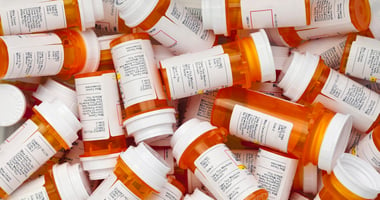APA Praises Congressional Passage of Opioid Treatment and Prevention Package
 |
“Opioid use disorder has taken a heavy toll on the health and well-being of Americans,” commented APA President Altha J. Stewart, M.D. “APA is grateful to see bipartisan support for increased access to treatment for substance use disorders [SUD], including expanded access to residential treatment and medication-assisted treatment.”
APA was disappointed, however, that the bill failed to include a critical revamp of a federal regulation known as 42 CFR Part 2 to align it with the Health Insurance Portability and Accountability Act. The changes for which APA had lobbied would have allowed for better care coordination, improved patient safety, and reduced stigma for SUD treatment while still preserving patient confidentiality, Stewart said. These measures are contained in the OPPS Act (HR 6082), which passed the House with overwhelming bipartisan support earlier this year. “We urge the Senate to hold a separate vote on the OPPS Act to ensure that these reforms become law.”
After passing the Senate 98 to 1, the legislation—The SUPPORT for Patients and Communities Act (HR 6)—now awaits President Trump’s signature. One year has passed since President Trump declared the opioid epidemic a national emergency, yet overdose deaths continue to climb, surpassing 72,000 in 2017, according to the latest provisional government estimates. That number represents a nearly 10 percent increase from the previous year.
HR 6 includes a number of provisions for which APA had lobbied, including the following:
Telemedicine: eliminates telehealth facility fees and waives geographic requirements for treatment of SUD for Medicare patients; also directs the Attorney General to issue final regulations within one year specifying the limited circumstances in which a special registration to use telemedicine to treat SUD may be issued and the procedure for obtaining a special registration.
Mental health and substance use treatment parity: mandates coverage of mental health and substance use disorder services for the 9.4 million low-income children enrolled in the State Children’s Health Insurance Program.
Workforce investment: creates a new student loan repayment program for SUD treatment providers (up to $250,000 per individual) who agree to serve for six years in underserved areas or areas with higher-than-average overdose rates.
Pain management: supports innovative medical research at the National Institutes of Health to combat the opioid crisis.
The legislation also lifts the ban on states from using Medicaid funds to treat SUD patients in larger residential facilities. States will now be able to amend their plans to cover institutional SUD treatment for up to 30 days per patient in a 12-month period.
The opioid package does not allot funding for its measures. In a separate measure last week, a FY2019 appropriations package provided $3.8 billion for the opioid crisis, a $206 million increase from 2018 funding levels.
For related information, see “APA Praises Congress for Passing Bill That Funds Mental Health and Substance Use Services.”
(image: iStock/Moussa81)





-Jun-24-2025-05-39-16-3390-PM.jpg?height=200&name=Petros%20Levounis%20OFFICIAL%20600%20(1)-Jun-24-2025-05-39-16-3390-PM.jpg)
